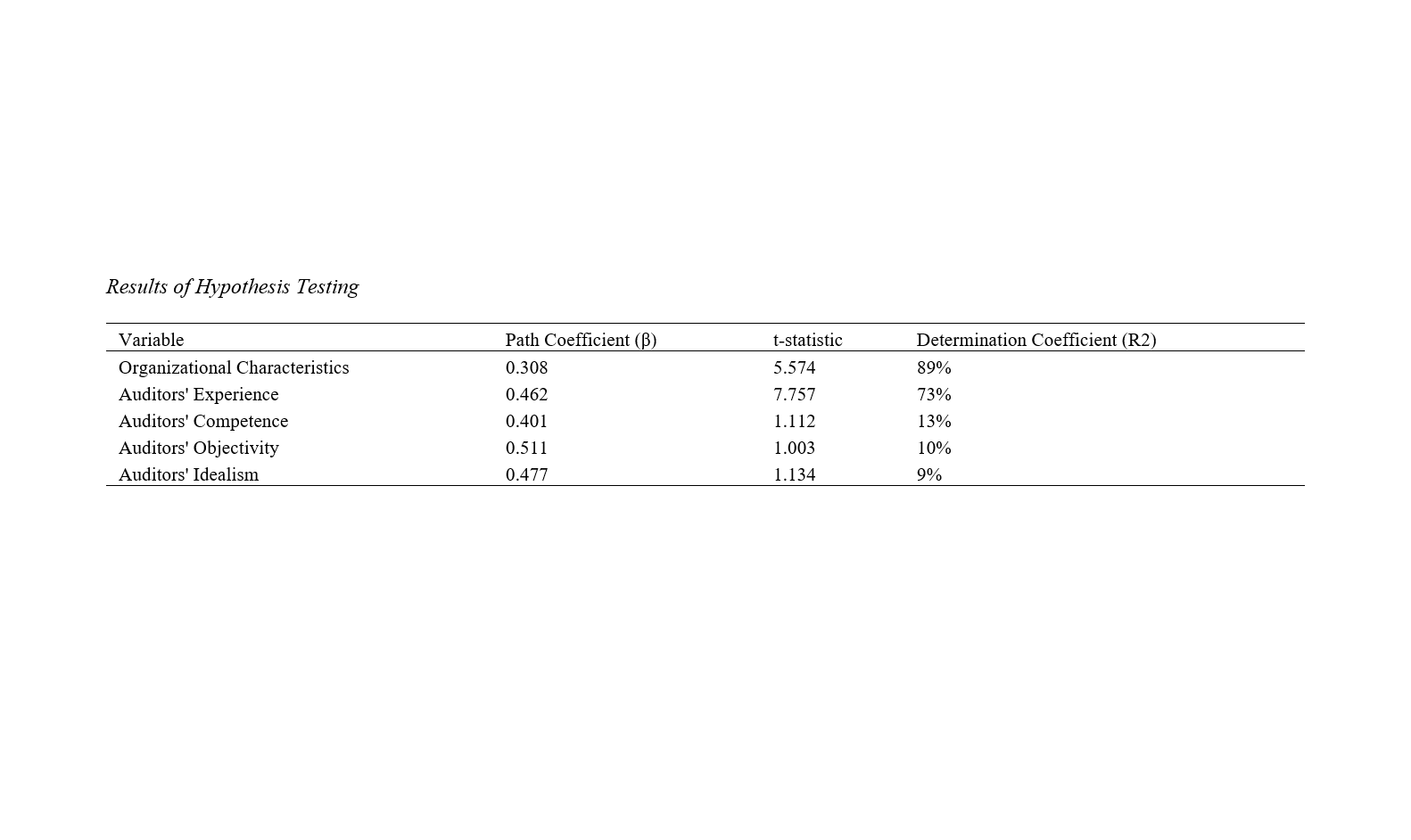Analysis of the Impact of Organizational Characteristics and Ethical Orientation on Auditors' Ethical Sensitivity
Keywords:
Organizational characteristics, Ethical orientation, Auditors' ethical sensitivityAbstract
Objective: This study analyzes the impact of organizational characteristics and ethical orientation on auditors' ethical sensitivity.
Methodology: It is descriptive-survey-based, field-based in its method, and deductive-library-based in terms of collecting the theoretical framework and research background. The statistical population under investigation includes all members of the Society of Certified Public Accountants, with a sample size of 338 individuals selected using Cochran's sampling method. After collecting the information from the distributed questionnaires, the research variables were calculated using Excel software, and the formulated hypotheses were tested using SmartPLS software.
Findings: The findings indicated that organizational characteristics and auditors' experience have a positive and significant impact on auditors' ethical sensitivity, while auditors' competence, objectivity (impartiality), and idealism do not have a significant impact on auditors' ethical sensitivity.
Conclusion: Given the importance of audit ethics, it is recommended that the Society of Certified Public Accountants include ethics education in their training programs to improve ethical characteristics and maintain auditors' independence and ensure greater oversight of adherence to audit ethics. Additionally, the committee responsible for developing audit standards can use the results of the present study to create standards that maintain auditors' ethical sensitivity.
Downloads

Downloads
Additional Files
Published
Issue
Section
License
Copyright (c) 2024 Mehdi Molaeinezhad (Author); Roya Darabi (Corresponding Author); Zahra Poorzamani (Author)

This work is licensed under a Creative Commons Attribution-NonCommercial 4.0 International License.















